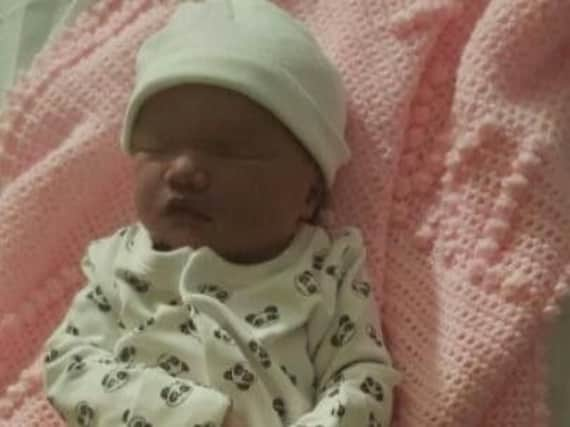Group B Strep infections: Grieving parents welcome assurance on clinical trial, but voice concern that NI not included


But Dunmurry couple Brendan and Susan Maguire, whose daughter Hollie was just 30 minutes old when she passed away at Belfast’s Royal Victoria Hospital on October 26, 2016, have expressed disappointment and concern that no maternity units in Northern Ireland have been selected to be part of the major UK clinical trial.
The £2.8m trial will involve units at 80 hospitals in England, Scotland and Wales, and the results will inform future policy across the UK.
Advertisement
Hide AdAdvertisement
Hide AdA spokesperson for the department insisted that Northern Ireland will benefit from any findings, adding that the region “will not suffer any disadvantage from the fact that none of our hospitals has been selected as sites for the research.”


“The department welcomes this extremely important research. The research was commissioned by the National Institute for Health Research, which the Department of Health co-funds and is being carried out to find the best way to prevent illness and death due to GBS infection in newborn babies,” the spokesperson said.
“The researchers selected 80 maternity units to take part in the study and women giving birth in these units will be offered the opportunity to take part in the research. The results of the research will be relevant to the whole of the UK including Northern Ireland.”
The department insisted that the absence of a functioning Assembly had “no relevance on the choice of the hospitals participating in the research.”
Advertisement
Hide AdAdvertisement
Hide AdDescribing GBS as a “silent and preventable infection”, Mr Maguire said: “We are happy that any learning is shared as it will only help other parents. However, there should be some trusts in the north taking part in the trial.
“The fact that no maternity units here have been included just shows that there are still systemic differences between Northern Ireland and the mainland.
“In the absence of any trials here this will be the most risky region (of the UK) when it comes to GBS infections.”
Following the conclusion of the inquest into their daughter’s death earlier this week, Mr and Mrs Maguire spoke out in a bid to encourage others to be aware of the seriousness of GBS infection.
Advertisement
Hide AdAdvertisement
Hide AdThey said all pregnant women should be given “the full facts” about the risks associated with GBS and offered the opportunity to go for screening – something which isn’t routinely offered by the NHS, but can be paid for privately.
Mr and Mrs Maguire said they have also raised their concerns about existing NHS policies and procedures regarding GBS with senior political representatives.
The Department of Health has insisted that during pregnancy each woman in Northern Ireland is given a hard copy of the ‘Pregnancy Book’, which contains detailed information on Group B Streptococcal infection.
The NHS website states that most pregnant women who carry GBS bacteria have healthy babies, but sometimes the infection in newborns can cause serious complications that can be life-threatening.
Advertisement
Hide AdAdvertisement
Hide AdAccording to the Group B Strep Support charity, GBS infections in newborn babies can usually be prevented by giving antibiotics to women during labour, which reduces the risk by up to 90 per cent.
For information log on to www.nhs.uk or gbss.org.uk